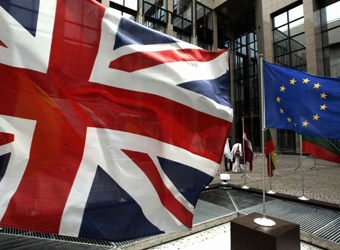Brexit talks are a “very difficult process” but they need to move fast to give enough time for officials to negotiate a trade deal, a top-ranking member of the European Commission has told CNBC on Thursday.
Jyrki Katainen, who is the vice president for jobs, growth, investment and competitiveness, noted that the EU is having trade talks with 21 different jurisdictions and the U.K. would just make another name on that list. Thus, the current discussions on how the U.K. will leave the Union need to be sped up to give enough time to prepare a new trade arrangement.
“It’s difficult to estimate anything at this stage but the faster we can settle the financial issues, people’s rights issues and border issues – which are rather concrete even though they are very complicated – the faster we can start negotiating our future relationship,” he said in an exclusive interview in Brussels where the U.K. and EU negotiating teams are concluding the second round of talks this week.
At the moment negotiators are focused on three key topics: How much the U.K. needs to pay to close its accounts with the EU, the rights of EU citizens living in the U.K. and vice-versa, and how the U.K.-Irish border will operate. The calendar suggests that both teams will fix these issues by October. Only after that, they will decide what kind of partnership they want to have in the future.
‘A good solution’
According to Katainen, who’s responsible for boosting investment in Europe, “Everything depends on the future design of our cooperation,” which includes the survival of the European financial services industry, he added.
“We really don’t know what will be the consequences,” Katainen said when asked about the impact on the European economy if the City of London becomes fragmented.
“Nevertheless, we are so interlinked, our interests are so interlinked that it’s better to find a good solution, that’s why we should have enough time for negotiations on the future arrangement,” Katainen added.
A positive for Europe?
Brexit hasn’t just been a negative for Europe, according to the EU commissioner. Katainen told CNBC that there’s a new impetus across member states to improve the European project.
“Because of Brexit, because of (the) Marine Le Pen type of phenomena, because of rule of law problems in Poland, because of (President Donald) Trump, because of fake news, because of all these things around we have seen a wakeup call,” he said.
Since the U.K.’s vote to leave the EU last year, the Union is seemingly pushing for more integration and key officials have sparked a debate on how the economic and political union should evolve. It has presented plans to strengthen the bloc’s defense policy, for example.
However, it remains to be seen how much of this new impetus will have a tangible effect, with many blaming the EU for being too slow.
“Europe is going to be a much better market, a much more prosperous market than it’s been so far. If you add all the trade agreements that we are negotiating, the EU will be more intra-traded, easier to understand and a better market for EU companies but also third country companies. So I’m very glad that there’s been sincere counter reaction from (the) citizens’ side, from governments’ side to haul those negative phenomena we’ve seen,” Katainen told CNBC.
Source: CNBC
